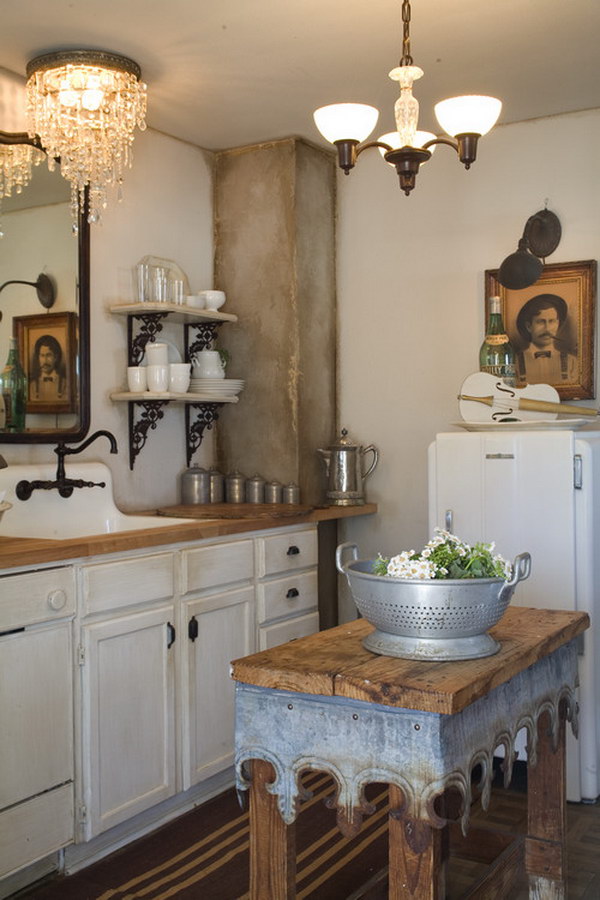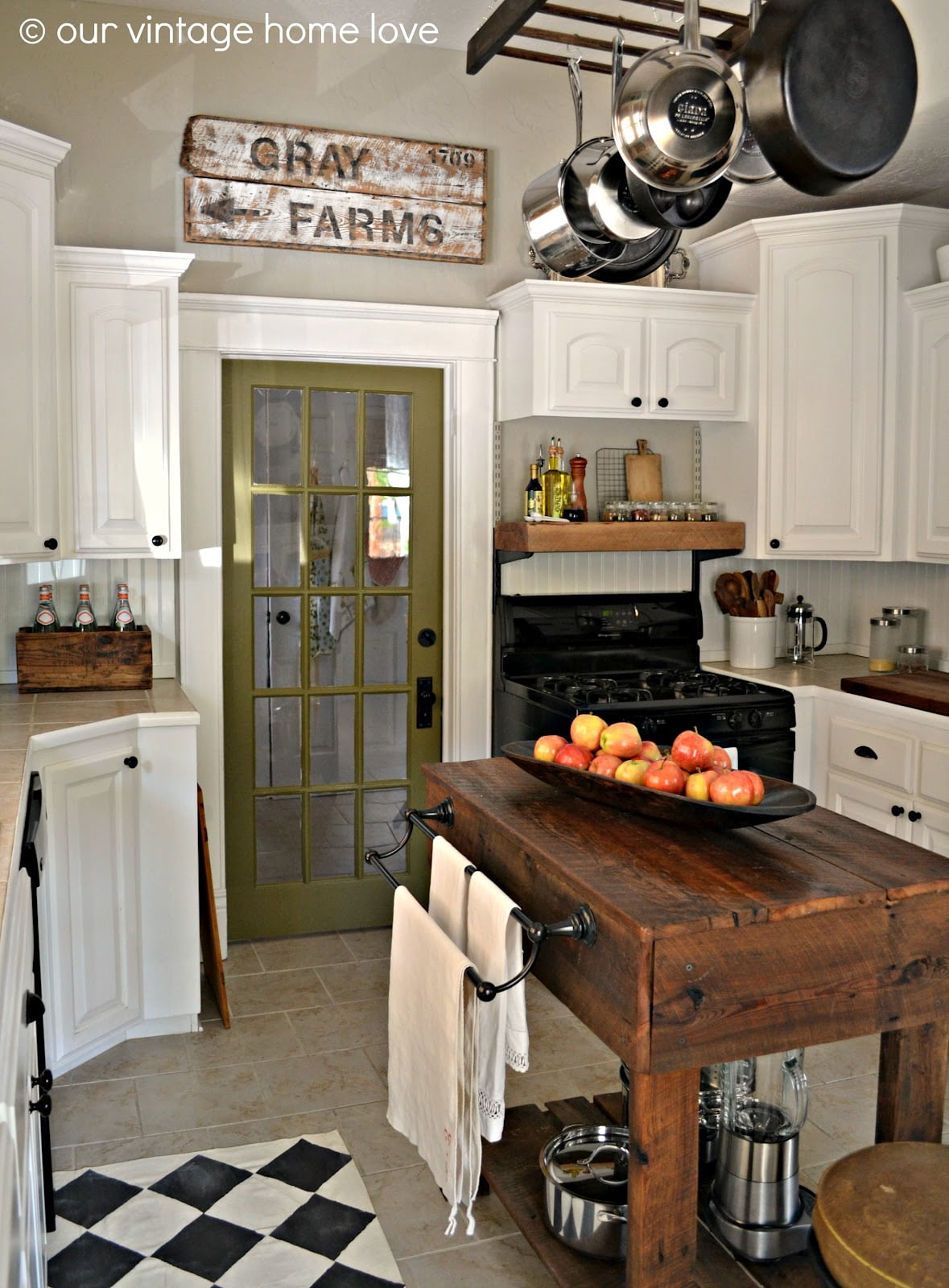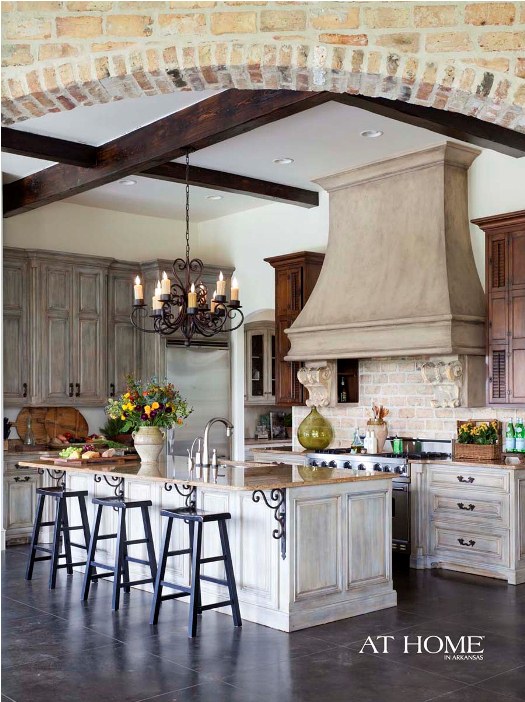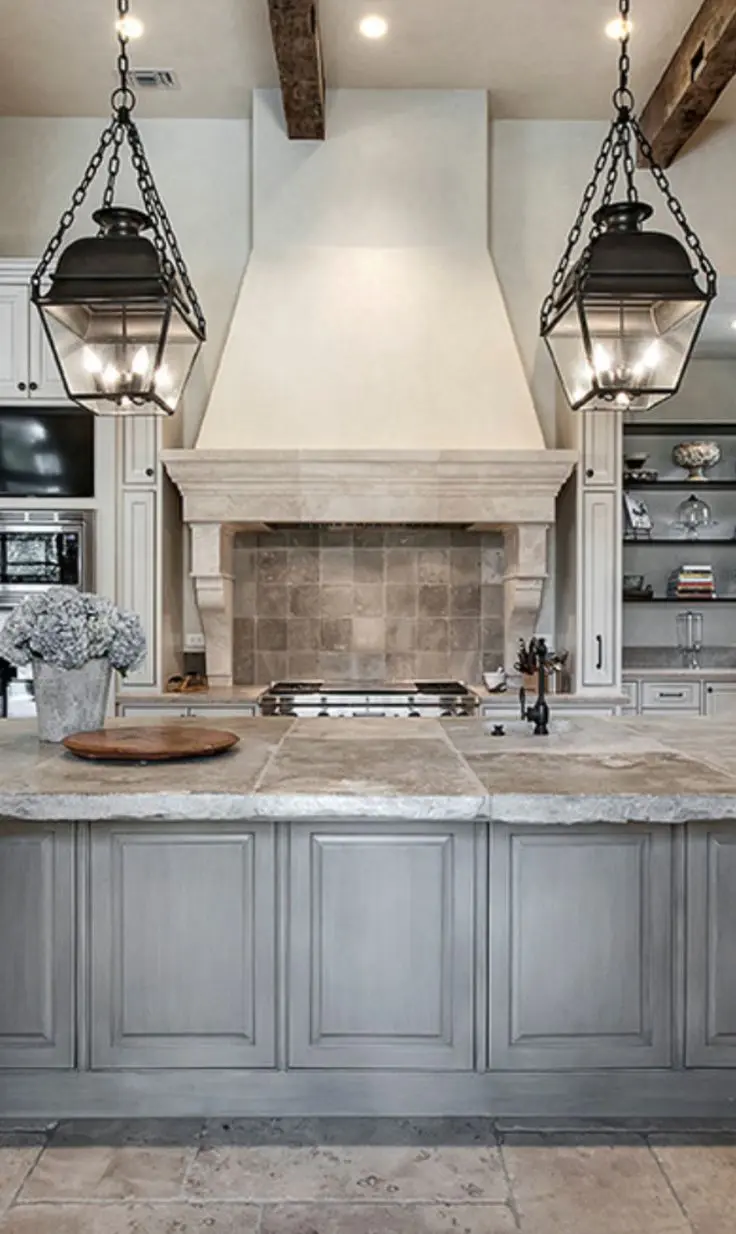The Elegance of Antique French Kitchen Islands
Antique French kitchen islands exude a timeless charm that transcends trends, bringing a touch of old-world sophistication to modern culinary spaces. These exquisite pieces of furniture not only serve as functional workstations but also as focal points that elevate the aesthetic appeal of any kitchen. From their rich history to their intricate designs, there’s much to discover about these captivating pieces. Let’s discuss about this antique French kitchen islands and explore the charms.

A Glimpse into History
The allure of antique French kitchen islands lies in their rich history, which dates back centuries. In the 18th and 19th centuries, France experienced a flourishing period of furniture craftsmanship, characterized by intricate designs and impeccable attention to detail. During this time, kitchen islands emerged as essential fixtures in French households, serving as versatile workspaces for food preparation and storage.
Crafted from high-quality woods such as oak, cherry, and walnut, antique French kitchen islands were meticulously handcrafted by skilled artisans. These artisans employed traditional woodworking techniques, resulting in pieces that were not only functional but also works of art. The exquisite carvings, ornate detailing, and elegant finishes are testaments to the craftsmanship of bygone eras.

Design Elements and Features
One of the defining features of antique French kitchen islands is their elegant design elements. From gracefully curved legs to intricate scrollwork, these islands showcase the epitome of French craftsmanship. Many feature marble or granite countertops, adding a luxurious touch to the overall aesthetic. Elaborate carvings, such as floral motifs or acanthus leaves, adorn the surfaces, imbuing each piece with a sense of refinement and sophistication.
Antique French kitchen islands often incorporate practical features designed to enhance functionality. Drawers and cabinets provide ample storage space for kitchen essentials, while shelves and hooks offer convenient organization options. Some islands even include built-in wine racks or butcher block tops, catering to the diverse needs of modern homeowners. These thoughtful details contribute to the enduring appeal of antique French kitchen islands as both practical and aesthetically pleasing additions to any kitchen.

Integration into Modern Spaces
While antique French kitchen islands boast a rich history, they seamlessly integrate into modern kitchen designs, adding character and charm to contemporary spaces. Their timeless appeal transcends fleeting trends, making them coveted pieces for homeowners seeking to infuse their kitchens with elegance and sophistication. Whether nestled in a farmhouse-style kitchen or juxtaposed against sleek, minimalist décor, these islands serve as focal points that anchor the room’s design aesthetic.
To complement the vintage allure of antique French kitchen islands, consider pairing them with eclectic accessories and furnishings. Vintage-inspired light fixtures, wrought iron accents, and distressed finishes can further enhance the island’s old-world charm. Additionally, mixing and matching textures and materials can add depth and visual interest to the space, creating a harmonious blend of old and new.

Maintenance and Care
Proper maintenance is essential to preserve the beauty and integrity of antique French kitchen islands. Regular cleaning with a soft, damp cloth helps remove dust and debris without damaging the wood or finish. Avoid harsh chemical cleaners, as they can strip away the island’s patina and dull its luster. Instead, opt for mild, non-abrasive cleansers specifically formulated for wood furniture.
To prevent damage from spills and moisture, it’s advisable to use coasters or placemats under glasses and dishes. Wipe up spills promptly to prevent staining or warping of the wood. Additionally, periodic application of furniture polish or wax can help nourish the wood and maintain its natural sheen. With proper care and attention, an antique French kitchen island can retain its beauty for generations to come.

Common Mistakes to Avoid
Neglecting Proper Maintenance: One common mistake is neglecting the proper care and maintenance of antique French kitchen islands. Failure to clean and protect these pieces can result in deterioration over time, diminishing their value and appeal.
Overlooking Authenticity: When purchasing an antique French kitchen island, it’s essential to verify its authenticity. Some replicas may mimic the appearance of genuine antique furniture but lack the craftsmanship and quality materials of the originals.
Mismatching Styles: Another mistake is mismatching the style of the kitchen island with the overall design aesthetic of the space. To achieve a cohesive look, ensure that the island complements the existing décor and furnishings.
Excessive Restoration: While minor repairs and touch-ups may be necessary to restore antique French kitchen islands, excessive restoration efforts can detract from their authenticity and charm. It’s important to strike a balance between preserving the original character and addressing any structural issues.
Ignoring Size and Scale: Finally, overlooking the size and scale of the kitchen island relative to the space can lead to visual imbalance and overcrowding. Take precise measurements and consider the proportion of the island to ensure it fits seamlessly into the kitchen layout.

Are antique French kitchen islands functional for modern kitchens?
Antique French kitchen islands are not only aesthetically pleasing but also highly functional, offering ample storage and workspace for modern culinary needs.
How can I distinguish between authentic antique pieces and replicas?
Authentic antique French kitchen islands often bear distinctive craftsmanship, patina, and signs of aging. Consulting with experts or reputable dealers can help verify authenticity.
What are some popular materials used in antique French kitchen islands?
High-quality woods such as oak, cherry, and walnut are commonly used in crafting antique French kitchen islands, often paired with marble or granite countertops for added elegance.
Can I customize an antique French kitchen island to suit my preferences?
While preserving the integrity of antique pieces is important, some customization options, such as refinishing or adding functional features, can be explored to personalize the island while respecting its heritage.
Are antique French kitchen islands a worthwhile investment?
Antique French kitchen islands are not only cherished for their beauty but also appreciated as valuable investments that can appreciate in value over time, especially when properly cared for and maintained.

Related Posts:
- Kitchen Island W Stools
- Kitchen Island Electrical Requirements
- How To Install A Kitchen Island Countertop
- Island Style Kitchen Table
- Kitchen Island Corbel Ideas
- Portable Center Kitchen Islands
- Little Island Kitchen
- Kitchen Center Island Plans
- Powell Color Story Butcher Block Kitchen Island
- Eclectic Kitchen Islands